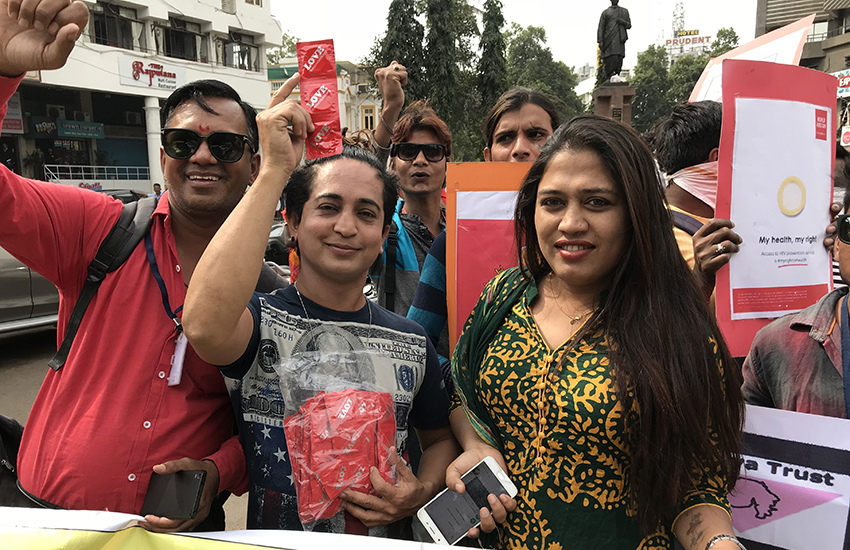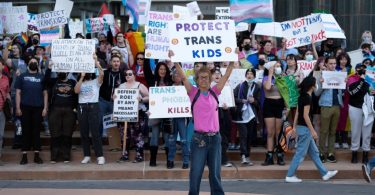A Valentine’s Day march in the city of Vadodara in Gujarat to raise HIV awareness (Photo: Emma Goswell)
In its ongoing deliberations over whether to repeal Section 377 of the India’s penal code, the country’s Supreme Court today asked the Indian government to explain its stand on consensual sexual relations between same sex adults.
It has given the government until July to return with an answer.
In effect, the Supreme Court is now forcing the government to make a decision on the issue. It’s something legislative members have previously appeared to prevaricate over.
LGBTI advocates have declared the ultimatum a ‘watershed’ moment in the ongoing campaign to legalize homosexuality in the country.
Ashok Row Kavi, chairperson of Humsafar Trust, a charity that works with India’s LGBT community, told Thomson Reuters Foundation today’s demand was ‘a watershed in the whole fight against Section 377.
‘The government will have to decide whether this colonial law should still stand relevant in a country that has its own constitution that protects fundamental rights of its citizens.’
Section 377 in India
Section 377 of India’s penal code dates back to 1861, when the country was under British rule. It broadly criminalized any ‘carnal intercourse against the order of nature with any man, woman or animal.’ Those found guilty face up to ten years in prison.
Campaigners were jubilant when the High Court of Delhi repealed the law with regard to consenting adults in 2009. However, their jubilation turned to dismay and anger when two members of the Supreme Court of India overturned that judgment in 2013.
The Supreme Court members said Parliament should decided whether to repealing the law, not the judiciary. Local religious groups broadly welcomed the court’s decision, but many international organizations, including the United Nations, criticized it.
Rather than being an anarchic, under-used piece of legislation, authorities across India used the Supreme Court ruling to once again prosecute LGBT people.
Section 377 was cited in the arrest of 600 people in 2014 and over 1,400 in 2015. It has also made it more difficult to promote HIV awareness.
Right to privacy
In early 2017, the Supreme Court agreed to consider petitions challenging its earlier verdict. It said petitions would be considered by a five-member board.
In August 2017, the Court ruled ‘Right to Privacy is an integral part of Right to Life and Personal Liberty.’
Campaigners believe this ruling nullifies Section 377 as it means consenting LGBT adults have a right to privacy.
The Supreme Court’s five-member board reconvened to begin discussions on Section 377 on Wednesday 17 January 2018. Today’s demand means the Court is demanding the government make a decision with regards to gay sex.
Its decision will have huge implications. India is the second most populated country on earth, with 1.3 billion inhabitants, and an estimated LGBT population of 78million.







